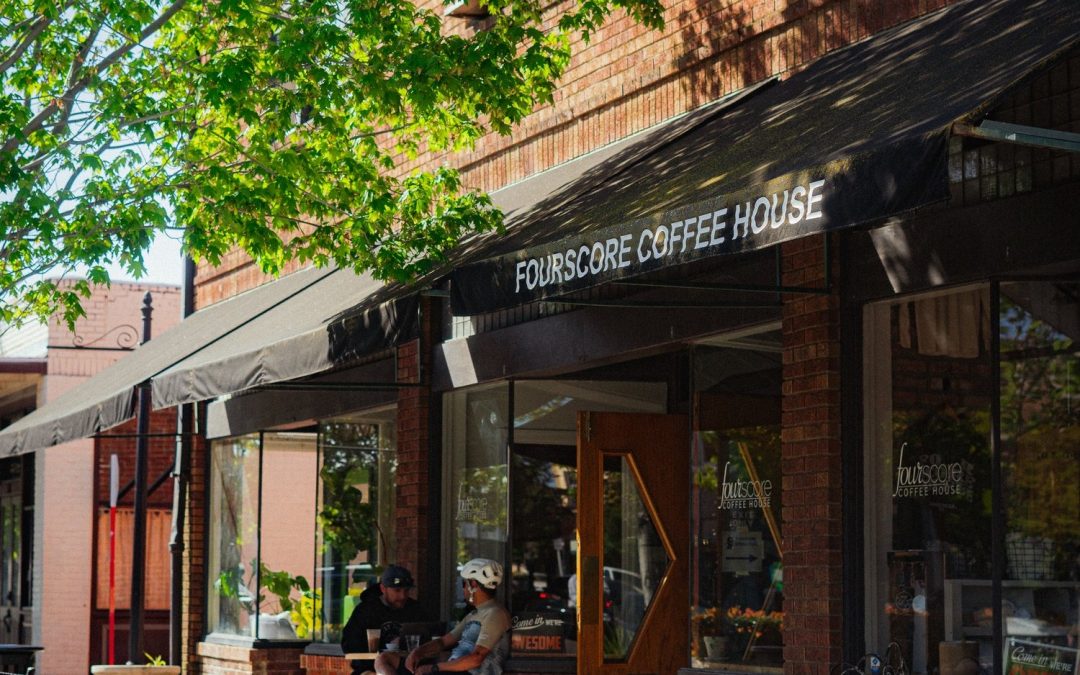The Power of Networking in Real Estate: Building Stronger Connections and Growing Your Business
In the dynamic world of real estate, building strong connections and networking with the local community is of utmost importance. As a face-to-face, relationship-based business, the power of networking cannot be underestimated. Establishing personal connections with individuals increases the likelihood of working together and receiving referrals. After all, people prefer to work with those they know, like, and trust. To effectively network in the real estate industry, there are various strategies that can be implemented. Getting involved in the local community through organizations such as the chamber of commerce, business networking groups, and charity events presents excellent opportunities to connect with others. It is not merely attending these events that matters, but actively volunteering time, resources, or financial support to help these groups thrive. Additionally, understanding an individual’s values and interests through community involvement increases the odds of collaborating successfully. Furthermore, cultivating relationships with fellow real estate agents proves to be invaluable when it comes to negotiating and facilitating deals for clients. By prioritizing networking and community involvement, real estate professionals can strengthen connections, expand their businesses, and contribute to the growth and prosperity of their local community.
The Influence of Networking in Real Estate
Importance of Face-to-Face Interactions
In an industry where a handshake can be more binding than a contract, the significance of face-to-face interactions is paramount. Real estate thrives on personal relationships and trust, often built over coffee meetings and open house events. These interactions enable professionals to express their passion and expertise directly, creating a memorable impression that’s tough to replicate via digital communication. When you meet someone in person, you have the opportunity to read their body language, gauge their reactions, and adjust your approach accordingly. This personalized communication fosters trust and rapport, which are critical components in a service-based industry like real estate. Moreover, face-to-face networking allows for immediate feedback and the chance to address concerns on the spot, streamlining the process of building professional relationships that are essential for referrals and repeat business.
How Trust Impacts Real Estate Deals
Trust is the cornerstone of any real estate transaction. It’s the foundation upon which successful deals are built and can significantly impact the outcome. When clients trust their real estate agents, they are more likely to take their advice, which can result in better purchasing decisions and smoother negotiations. Trust also encourages openness, leading clients to disclose their true preferences and constraints, allowing agents to serve them more effectively. On the flip side, a lack of trust can lead to hesitation, miscommunication, and ultimately, lost opportunities. Building trust requires consistency, honesty, and transparency throughout the client-agent relationship. Agents who prioritize these values often find themselves with a loyal client base that not only returns for future transactions but also provides valuable referrals. Trust, once established, creates a virtuous cycle of repeat business and referrals, which is essential for long-term success in the competitive real estate market.
Strategies for Effective Networking
Effective networking in real estate isn’t just about collecting business cards; it’s about building substantive relationships. To network efficiently, start by setting clear goals for what you want to achieve, such as meeting potential clients or learning more about the local market. Attend industry events, conferences, and local community gatherings regularly, but do so with a purpose. Instead of trying to meet as many people as possible, focus on forming quality connections with individuals who align with your business goals. Active listening is also critical – show genuine interest in others’ experiences and needs. Follow up after meetings with a personalized message referencing your conversation, which can help solidify the connection. Leveraging social media platforms can also be a powerful tool for maintaining and expanding your professional network. Engage with your contacts’ posts, share relevant content, and use these platforms to showcase your expertise and market knowledge. Remember, networking is about mutual benefit, so always consider how you can provide value to your contacts as well.
Getting Involved in Your Local Community
Engagement with your local community is a powerful way to build your network organically. Involvement in community events, local charities, and public forums positions you as an invested and caring member of the area you serve. By participating in community projects or local government initiatives, you have the chance to meet a wide array of residents and stakeholders. This not only increases your visibility but also demonstrates your commitment to the community’s well-being. Hosting or sponsoring local events can further cement your reputation as a supportive local business leader. These activities shouldn’t be viewed as one-off opportunities, but rather as part of a continuous effort to be an active contributor to your community. Consistency in community involvement can lead to stronger, more meaningful connections that transcend professional encounters, laying the groundwork for trust and respect in your business relationships.
Investing Yourself: Time, Resources, and Money
Investing in your community is more than a business strategy; it’s a commitment to the growth and success of the area you serve. By dedicating your time, you demonstrate that your interest in the community goes beyond transactions. Volunteering for local causes or serving on boards of non-profits shows a personal investment that people remember when they’re looking to buy or sell a home. Allocating resources, such as offering your office space for community meetings or providing materials for local events, can significantly benefit community initiatives and, in turn, strengthen your network. Financial contributions to local causes also reflect your dedication to the community’s future. These investments help foster a positive reputation and can lead to a deeper connection with community members. It’s important, however, to ensure that your contributions are sincere and align with your values, as authenticity is key to building lasting relationships.
Community and Real Estate: A Symbiotic Relationship
Understanding Your Community
Grasping the intricacies of your community is vital for real estate professionals. This understanding goes beyond knowing the market data—it’s about comprehending the local culture, values, and the residents’ way of life. Start by engaging with community members in everyday settings, such as local shops or community centers, and participate in local events. This will give you insights into what makes your community unique and what residents care about. Being knowledgeable about local schools, parks, upcoming developments, and even the best coffee spots can be invaluable when interacting with potential clients. Such details can help you match clients with their ideal neighborhood, not just a house. Remember, when you’re well-versed in the local narrative, you become more than an agent; you become a trusted advisor who can offer tailored, insightful advice to those looking to make your community their home.
The Importance of Networking with Other Agents
Networking with other real estate agents is as crucial as connecting with potential clients. Building a professional network with your peers can lead to collaborations that benefit all parties involved, including buyers and sellers. Sharing insights, market trends, and available properties can help close deals more efficiently and effectively. Moreover, establishing good relationships with other agents can lead to referrals, which are particularly valuable in the real estate industry. When you have a property that doesn’t quite fit your client’s needs, another agent in your network may have the perfect listing—and vice versa. Additionally, having a strong network allows for the exchange of best practices and advice, which can be incredibly helpful for professional growth. Mutual respect and cooperation among agents foster a more productive and supportive environment that can elevate the entire community’s real estate market.
Harnessing the Power of Relationships for Negotiation and Deal-Sealing
The relationships you cultivate within the community and with other real estate professionals can be a decisive factor in negotiations and closing deals. When trust is established, negotiations proceed with greater ease, transparency, and a willingness to reach mutually beneficial agreements. A strong relationship can lead to better communication and understanding between parties, which is essential during the negotiation process. This can result in more favorable terms for your clients, as well as a smoother transaction overall. Additionally, when it comes time to seal a deal, having a good rapport can expedite the process, as there is an inherent trust that each party will act in good faith. It’s important to remember that every interaction in the real estate business can contribute to your reputation. By consistently demonstrating integrity and professionalism, you’ll be able to harness the power of relationships to negotiate and close deals with greater success.






